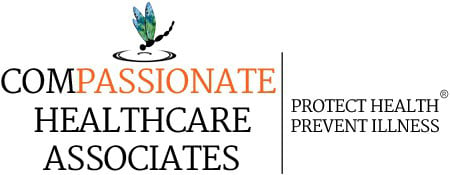Functional Medicine Services offered below are provided by bridging conventional and functional medicine approaches through recommending lifestyle changes in the areas of food, movement, restore, sleep, and fitness. Nutraceuticals and/or pharmaceuticals as appropriate.
What to Expect
In the first patient visit, an hour is spent gathering information from the patient to identify the process that led them to this current state of health. The provider and patient discuss lifestyle factors and behaviors such as diet, lifestyle, nutrition, stress, and resilience to stress. Then we organize the patient’s clinical imbalances by using a whole body systems approach and correcting the imbalances in each of the body systems which are affected. An online comprehensive health questionnaire may be required to gather all of the necessary health information to help identify deeper root causes of their illness. The office offers a 12-week plan: the first six weeks include weekly visits where the patient completes a medical symptoms questionnaire to help guide their individual goals, a physical exam is done, and appropriate lab work is collected for the individual to identify the imbalances. The weekly meetings are to review lab results in detail to help the person understand their illness, help the patient stay on track with life style goals, and monitor changes, symptoms, and improvement towards an optimal state of health.
Hormone Balancing
Customized hormone replacement therapy is the use of supplemental doses of steroid hormones with a chemical structure identical to hormones naturally produced in the body. The term “bioidentical” denotes hormones that are chemically synthesized to be identical to the natural hormones in the body of the human body. Treatment with customized hormones is based on hormone deficiencies identified via saliva samples and can be adapted to fit a woman’s or man’s needs.
Customized Nutritional Plan
Includes a review of your current and past eating habits and an evaluation of possible food sensitivities. A discussion regarding your attitudes about health challenges such as weight loss, body image and how you view food.
Gastrointestinal Issues
The health of the gut has a central role in chronic, systemic disease. This can include intestinal pathogens and allergens, to intestinal permeability and imbalances in gut flora. Gut dysfunction compromises a person’s health and diminishes vitality. It is often the first place to start in improving overall health.
Stool Testing
A functional medicine comprehensive stool test is unlike any your conventional practitioner does. The test looks at levels of good bacteria in your gut, and can determine if you have any infections of bacteria, yeast or parasites. It looks to see how well you break your food down into fiber, how well you are digesting and absorbing your fats, and determines your level of digestive enzymes.
Thyroid Balancing
Thyroid imbalance occurs when the thyroid gland produces too much or too little of the thyroid hormones (T4 & T3). Many things can cause this to happen; such as an autoimmune condition, surgery, gut issues, gluten sensitivity.
Detoxification
We are exposed to a more complex array of toxic compounds in our air, water, and food than ever before. An individual’s ability to detoxify and excrete toxic substances is of critical importance to overall health. Even low-level toxic exposures contribute to the development of a variety of chronic health conditions, including fatigue, endocrine disruption, and chronic degenerative diseases.
Optimal Health Consult
This includes an evaluation of your current and past health conditions, physical examinations, review of previous lab work, and a review of current medications and supplements. The goal is to discover what is impacting your health and defining a path forward to achieve your health goals.
Adrenal Imbalances
The adrenal glands produce cortisol; a hormone best known as the fight or flight adrenal response to stress. Chronic stress can cause adrenal imbalance. Sometimes the cortisol levels are reversed – low in the morning making it difficult to get up in the morning, and high at night causing insomnia. Other times the cortisol levels are low all of the time causing chronic fatigue, low libido, mental fatigue, cravings of salt or sweet, or difficulty losing weight.
Energy and Fatigue Issues
Mitochondria are little factories inside our cells that generate energy and play a central role in our metabolism, our vitality and our well-being. Mitochondria are very sensitive to damage and when they aren’t working properly, you suffer all the symptoms of low energy — fatigue, memory loss, pain, rapid aging and more. Understanding the things that damage your mitochondria — things like toxins, infections, low-nutrient foods, allergens and stress – and ways to improve and heal the mitochondrial is the first step to start feeling your healthy best.
Metabolic Disorder – Diabesity
Also known as diabesity. This happens because the person does not get enough exercise, eats too much or has too many meals that contain sugar or carbs. Signs of metabolic disorders are high blood pressure, high blood sugar, increase waistline, fertility issues, difficulty losing weight, and many more.
High Cholesterol
Cholesterol is a type of fat (lipid) in your body. Your cells need cholesterol to function properly; especially the brain. High cholesterol levels don’t make you feel sick so a blood test is the only way to know your cholesterol levels. The standard blood test to check cholesterol levels does not provide adequate information to really tell if one is at high risk for cardiovascular disease. The more appropriate blood test will look at the cholesterol particle size revealing true marker(s) for disease.
Depression & Anxiety
Depression and anxiety are different conditions, but they commonly occur together. Symptoms of both conditions usually improve with psychological counseling (psychotherapy), improving nutrition & sleep habits, using stress-reduction techniques and getting regular exercise.
High Blood Pressure
Blood pressure is the force of blood pushing against the walls of the arteries as the heart pumps blood. High blood pressure, sometimes called hypertension, happens when this force is too high at higher than normal pressures. Ideal blood pressure is less than 115/75. High blood pressure is 140/90 or higher.
Migraines / Headaches
Migraines and other types of headaches, such as tension headache and sinus headache, are painful. A migraine headache can cause intense throbbing or a pulsing sensation in one area of the head and is commonly accompanied by nausea, vomiting, and extreme sensitivity to light and sound. Not all headaches are the same and symptoms vary.
Allergies
Allergies occur when your immune system reacts to a foreign substance such as pollen, bee venom or pet dander. When you have allergies, your immune system makes antibodies that identify a particular allergen as harmful. When you come into contact with the allergen, your immune system’s reaction can inflame your skin, sinuses, airways or digestive system. The severity of allergies varies from person to person and can range from minor irritation to anaphylaxis.
Asthma
Asthma is a condition in which your airways narrow and swell and produce extra mucus. This can make breathing difficult and trigger coughing, wheezing and shortness of breath.
Exams Offered
Well Women with Pap Smear
Well Women with Pap Smear is an annual preventive screening of breast and gynecological conditions. Well-woman exams are an important part of preventive care and are the first step in wellness and early detection of disease(s). During the visit the practitioner will discuss your health and lifestyle behaviors and will perform a physical exam of your pelvis and breasts.
Adolescent Physical
Adolescence is a unique stage of development that requires the support of health care professionals. Teen health care involves more than routine check-ups. There are diverse health needs such as physical development, body image, nutrition, sexuality, mental health, and screening for use of substances and other risky behaviors.
Pre Operative Exam
An examination and blood work done prior to having surgery focusing on risk factors for cardiac, pulmonary and infectious complications, and a determination of a patient’s functional capacity.
Sports Physical
also known as the ‘preparticipation examination (PPE). The exam helps determine whether it’s safe for a person to participate in a particular sport.
Complete Physical
Complete Physical is having an annual physical examination is a good way to catch health problems before they become serious. The practitioner will spend time listening to your concerns and providing counseling for your particular needs.

















